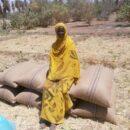What if Ocampo Indicts Bashir? 1
This is a hypothetical question in view of how methodical the Chief Prosecutor is in choosing the suspects he intends to investigate and the time at which he will issue the indictments. But for the sake of argument, let us assume that this scenario proved to be the case. The first question that comes to mind is what purpose this indictment will serve in providing justice for the people of Darfur, and in upholding accountability and ending impunity?
Let us remember that the case of Darfur may be the first case in history when genocide was determined while the accused regime is still in power. The controversy surrounding that issue is not settled until this moment. Indicting a Head of a State – irrespective of the legitimacy of that government – may shift the focus from the legal realm to the political sphere and may alter the very purpose of the indictment: seeking justice. Having said that, it is feasible to indict Bashir while in power if the indictments of the lower-level officers of the government have shown – beyond a reasonable doubt – the irrefutable involvement of the state at its highest level in the conspiracy to commit these crimes and the President was complicit in this conspiracy. With that in mind, the indictment of Bashir will have the following impacts:
“¢ It will serve as a deterrent to those future genocidaires who think they can hide behind the sovereignty of the State to commit such crimes with utter impunity.
“¢ It will tighten the screws on the Government of Sudan and will serve as leverage to pressure the regime to end its reign of terror.
“¢ It might encourage the moderates within the regime – if any – to sacrifice Bashir to save themselves and the regime, and to avert throwing the country into chaos.
“¢ It will show that justice is paramount and indispensable, and regardless of the consequences, the commitment to accountability by the international community, coupled with the demands of the victims – the Darfurians – will be respected when justice is served and impunity ended.
Cognizant of the fact that:
“¢ The indictment will give ammunition to the “conspiracy theorists” who allege that the West is out to get Bashir because of his government’s Islamic orientation. It will also fuel the accusations that the double standard of the West is manifested in appeasing Israel and imperialism at the expense of weaker countries like Sudan, Iraq and Iran.
“¢ Bashir will use his propaganda machine to rally the “troops” and call on “true believers” to circle the wagon to defend Islam against the “Infidels”.
“¢ And the indictment might undermine the Government of National Unity, and consequentially, the CPA, as much as it might push the NCP to a corner and make the hard-liners’ discourse prevail over the moderates’ and will lead to the escalation of war in Darfur, which might spill over into the south and throw the whole country into a tail spin.
I would conclude that indicting Bashir is not a goal by and in itself, the indictment of the regime – which was already established – is much more important. Ocampo and the ICC may not have the power to change the world; the dream of creating a new order where human rights principles are upheld isn’t part of their “legal” thinking, nor should it be; the pursuit of justice however, is the reason why they became the subject of our discussion.
Omer Ismail is a Darfurian and an advisor to the ENOUGH project.







While I recognise your dislike of Bashir we still have to be factual while discussing such a volatile issue. The conflict in darfur has never been proved to be a genocide (except to the American government) and the truth is most Ministers and soldiers with the Bashir government are from darfur, so how is it that they accept the task of cleansing Sudan from their own families?
Any attemt to go over the top using the ICC will eventually backfire as it creates a legal precedent which can then be used to go after any Head of State unpopular with the USA !! This will not be acceptable to any country and will lead to the discredit of the ICC especially after its controversial handling of the Darfur crisis while overlooking Israeli war crimes, American civilian casualty rates and Russian assassinations in Chechnya, Abkhazia etc.